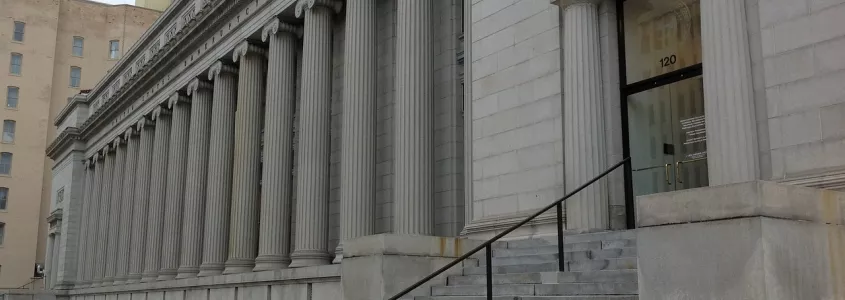
Table of contents
A civil enforcement proceeding is a legal procedure used to enforce a judgment or judgment in a civil case. This process is initiated after a court has issued a judgment in favour of one party in a civil case and the other party fails to comply with the terms of the judgment.
In the civil enforcement process, the party who has won the judgment asks the court to order the debtor to comply with the terms of the judgment. This may include the payment of a specified amount of money, the delivery of goods or the performance of a specific action.
If the debtor fails to comply with the court's order, the civil enforcement process may allow the successful party in the case to take additional steps to recover what is owed. These steps may include seizing the debtor's assets or obtaining a judgment of eviction to recover the property owed to the successful party in the case.
What are the characteristics of civil enforcement proceedings?
The features of a civil enforcement process may vary depending on the jurisdiction and applicable laws, but in general, they include the following:
- Initiated after a judgment or judgment: A civil enforcement proceeding is initiated after a court issues a judgment or judgment in favour of one party in a civil case and the other party fails to comply with the terms of the judgment or judgment.
- Its objective is to enforce the judgment or judgment: The main objective of the civil enforcement process is to make the party who lost the case comply with the terms of the judgment or judgment issued by the court.
- It takes place before a court: The civil enforcement process takes place before a court, usually the same court that issued the judgment or judgment.
- A court order is required: To carry out civil enforcement proceedings, a court order is required ordering the debtor to comply with the terms of the judgment or judgment.
- May involve coercive measures: If the debtor does not comply with the court order, the civil enforcement process may allow the successful party in the case to take coercive measures to recover what is owed to it. These measures may include seizing the debtor's assets or obtaining a judgment of eviction to recover the property owed to the successful party in the case.
- May involve additional costs: The civil enforcement process may involve additional costs to the successful party in the case, such as attorney's fees and litigation expenses, although some of these costs may be recovered if the debtor is ordered to pay them.
How is the civil judgment enforced?
The steps to follow are:
- Filing an application for enforcement: The successful party in the case must file an application for enforcement with the court that issued the civil judgment. In the application, the party must indicate which terms of the judgment have not been complied with and the manner in which enforcement of the judgment is desired.
- Issuance of an enforcement order: If the court finds that the application is valid, it will issue an enforcement order directing the debtor to comply with the terms of the judgment. The order may include seizing the debtor's assets or obtaining a judgment of eviction to recover the property owed to the successful party in the case.
- Notification to the debtor: The successful party in the case must notify the debtor of the enforcement order. The debtor will be given a deadline to comply with the court order. If the debtor does not comply with the order, the successful party in the case can take further steps to enforce the judgment.
- Enforcement of judgment: If the debtor fails to comply with the court order, the successful party in the case may take additional steps to enforce the judgment. These measures may include seizing the debtor's assets or obtaining a judgment of eviction to recover the property owed to the successful party in the case.
- Report to the court: After the judgment has been enforced, the successful party in the case must report to the court that the judgment has been enforced.
When does the enforcement process end?
The enforcement process ends when all the terms of the judgment issued by the court have been complied with. This can occur in several ways, for example when the debtor complies with the terms of the judgment, the successful party in the case accepts a payment agreement or the court issues a cancellation order.

"Anywhere in Spain"
With our online appointment system you will have immediate advice without the need for face-to-face visits or travel.
One of our lawyers specialized in your area of interest will contact you to formalize an appointment and make your consultation by video call.

Add new comment